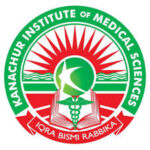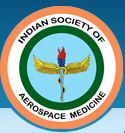Medical
Your Journey, Our Expertise: Career & Campus Synergy, Guiding You Towards Achieving Your Goals
Medicine
Medicine is a vast field of study and it is one of the most coveting professions across the globe. Majority of the graduate programmes in medicine are five and a half years long; including four and a half years of training and 1 year of internship. A post graduate programme in medicine is three years long.
There are a good number of options (specializations and super specializations) in medicine. One may choose anyone among these specializations ‘Admission to medicine and allied health professions are based on students’ merit performance in the entrance examinations and higher secondary education.

Medical Courses: Eligibility Criteria
Under Medicine and Allied Courses category, entrance examination is conducted for -MBBS, BDS, Ayurveda (BAMS), Siddha, Homoeo, Agriculture, Forestry, Veterinary & Animal Science, Fisheries, etc. Academic eligibility for the above courses is a pass in the higher secondary examination of the Board of Higher secondary Examination or any examination equivalent to the above approved by State Government with 50%•narks in Biology separately and 50% marks in Physics, Chemistry and Biology put together. In the absence of Biology, Biotechnology is considered as subject for academic eligibility. In addition to above the candidate should secure 50% marks in the Medical entrance examination for paper 1 and 2 put together. For SC/ST/SEBC candidates the mark required will be 40% only. For admission to Ayurveda, Siddha, Homoeo, Agriculture, Forestry, Fisheries, the academic eligibility is the same as above. For these courses also biotechnology is considered as one subject in the absence of Biology. In addition, candidates passed the BSc degree courses after passing Higher secondary examination. or equivalent examination approved by State Govt. with Physics, Chemistry, Zoology, Botany & Biotechnology as main and anyone as subsidiaries in BSc degree examination taken together with 50% marks are academically eligible for admission to MBBS, BDS,Ayurveda, Homoeo and Siddha courses.
MBBS
MBBS, the abbreviated form of Bachelor of Medicine and Bachelor of Surgery, is a graduate course in medicine and surgery. Though, in theory, there are two separate branches; in practice they are treated as a single degree. This is the basic qualification for beginning a medical profession as a doctor. MBBS programme is regulated by Medical Council of India (MCI).
After completing MBBS, if not going for higher studies one can join any large hospitals where they will be admitted as duty doctors to gain experience. Once sufficient experience is gained, one can start his own private clinics (private practice) if interested, or may find jobs as senior surgeons/ physicians depending on their special areas of study. Government hospitals, private hospitals, military, etc. are all in need of medical personnel and so all these options are available to an MBBS graduate. Teaching in medical colleges, working abroad, etc. are other career options.
The normal duration of the MBBS programme is five and a half years, including internship of one year. Students who have completed their plus two (10+2) or equivalent with science as mains can appear for the entrance examinations, which decide one’s admission. Students are admitted purely on the basis of their merit performance in the entrance exams.
BDS
BDS or Bachelor of Dental Surgery is that branch of medicine whose concentration is on dental hygiene and dental sicknesses. It is a five year programme, consisting four years of — study and one year of internship. Dentistry is that branch of medicine dealing with the methods of prevention, diagnosis, and treatment of conditions, diseases, and disorders of the oral cavity, the maxillofacial region, and its associated structures of human beings. A doctor qualified to practice dentistry is called dentist.
In India, BDS degree is regulated by the Dental Council of India. Similar to the MBBS, the students need to appear for the entrance exams, based on which the admissions are done: Apart from the state and central government entrance examinations, some institutes conduct their own entrance tests. After completing BDS, one can opt for higher studies Master of Dental Surgery (MDS) which is a three year post graduate course.
BAMS
Bachelor of Ayurvedic Medicine and Surgery (BAMS) is an undergraduate degree. It deals with the Ayurveda, one of the major branches of medicine. The normal duration of DAMS is five and a half years, including 1 year of internship. Similar to other medicine courses, students who have completed plus two (10+2) or equivalent in science stream, are eligible for applying to this course. Admission is done through entrance examinations.
Bachelor of Homoeopathic Medicine & Surgery (BHMS) is a medical graduate programme in Homoeopathy, a holistic system of medicine which is based on treating the sick with highly diluted medical substances given mainly in the form of small tablets. BHMS programme imparts to the students deep knowledge in Homoeopathic medicinal system, a holistic alternative medicine. Including internship, the duration of BHMS is 51/2 years. Students who passed the I 0+2THSE or any equivalent course recognized by the state or central board of education with scoring not less than 50% of marks for Physics, Chemistry, Biology and English are eligible for admission. The admission is based on student’s merit performance in the entrance tests.
BNYS
The Bachelor of Naturopathy and Yogic Sciences (BNYS) is a medical degree programme in the field of integrated naturopathic medicine and yoga therapy. The normal duration of the programme is five and a half years, including one year internship. Students who have completed 12th or equivalent with science subjects are eligible for admission in this course. Admission is dependent on the students’ performance in entrance tests followed by personal interview.
BUMS
Bachelor of Unani Medicine & Surgery (BUMS) is a five and a half years medical degree programme; including four and half years of training and one year of compulsory rotatory internship in a medical college. Students who have passed 10+2 (higher secondary education) or equivalent in science stream with physics, chemistry and biology; with the required percentages of marks are eligible for admission in PlUMS programme. The admission, however, is done through the entrance tests. Unani Medicine (also spelled Yunani Medicine) is an elaborate medical system, developed from the traditional medicine which was practiced in the middle-east & south-Asian countries. Unani medicine is based on the concept of the four humours viz. Phlegm, Blood, Yellow bile and Black Bile.
BSMS
BSMS programme is a bachelor degree in Siddha medicine and surgery. Courses in this medicine field are offered by seven Siddha Medical Colleges, most of which are located in Tamil Nadu, Kerala has one such institute – Santhigiri Siddha Medical College which is located in Thiruvananthapuram. It is affiliated to the 1, Kerala University. Siddha 4, Medical Colleges in Tamil Nadu is affiliated to MGR University and in Karnataka also.
Students who have completed HSE (10+2) or equivalent course with Physics, Biology and Chemistry with not less than 60% of aggregate marks, are eligible for admission. Admissions for BSMS programme are purely based on the common entrance test conducted by the respective state governments.
List of Medical Colleges in India
Ready to Begin Your Journey?
Apply for Admission Today!










